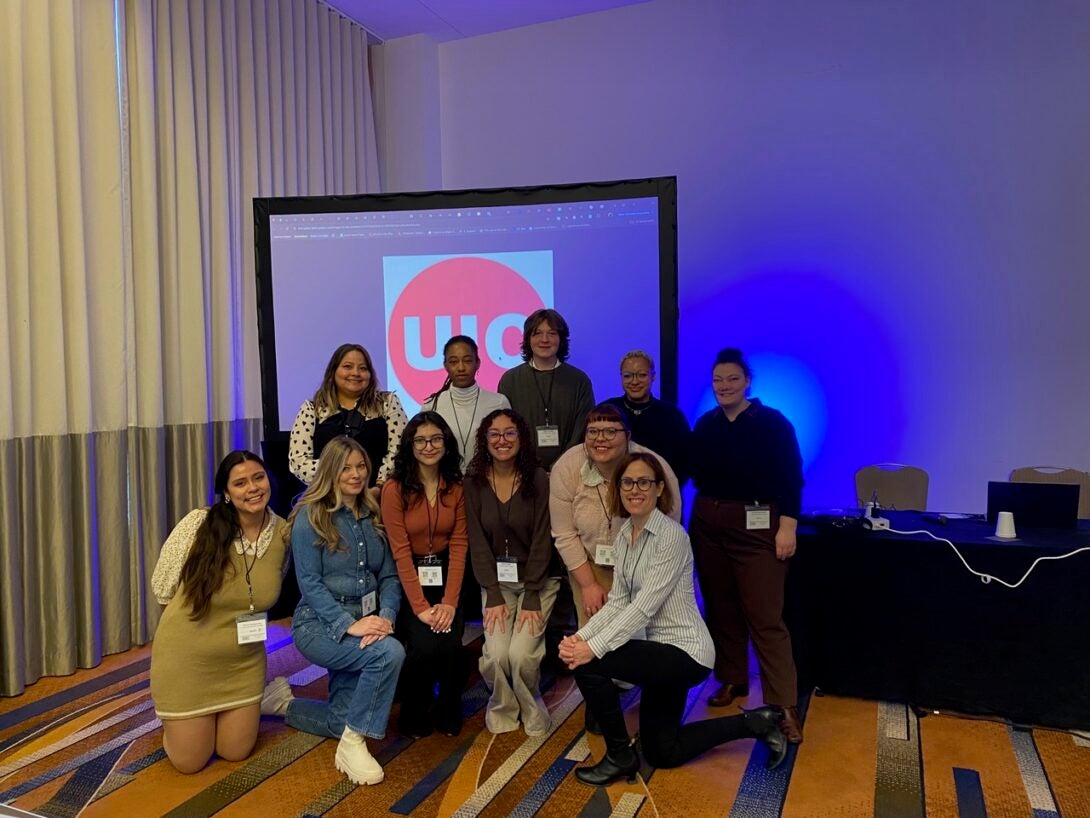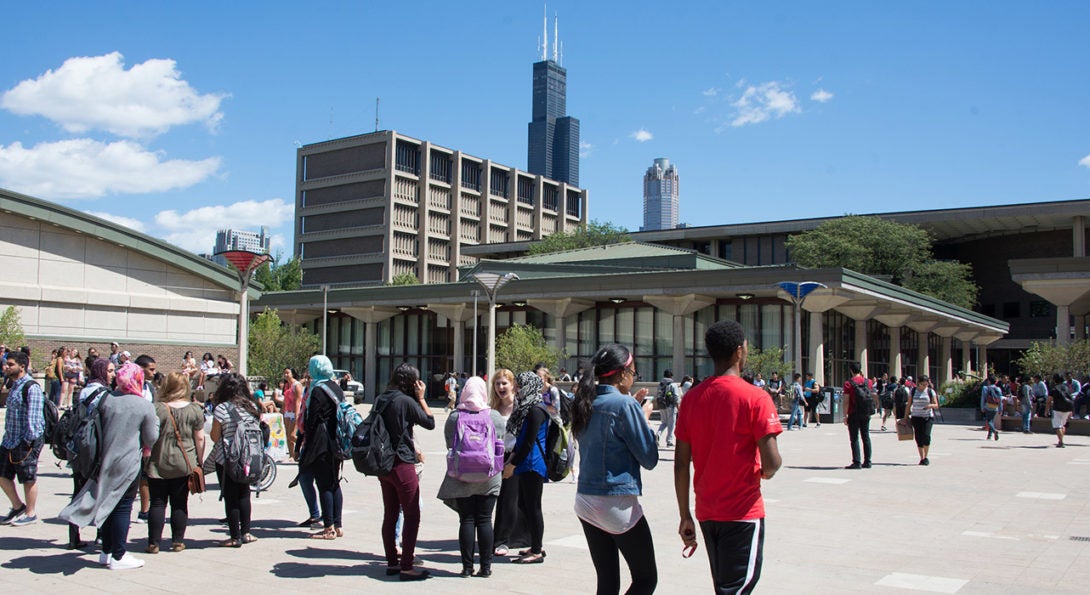Undergraduate Research Opportunities
Research Opportunities for Undergraduate Students
Liberal Arts and Sciences Undergraduate Research Initiative (LASURI)

The College of Liberal Arts and Sciences offers students the opportunity to gain research experience through the LAS Undergraduate Research Initiative. Through this program, students work with a dedicated faculty mentor on a research project of either their own choosing, i.e., Honor’s capstone or on a faculty mentor’s project. Students who participate in LASURI learn
- Effective communication skills
- Develop professional relationships with faculty
- Understand how to manage research and research hurdles
- Critical thinking and time management
Students can apply for the program during the spring semester and carries with it a scholarship of up to $1250 per semester. Interested students can find more information at this link.
Graduate-Undergraduate-Research-Mentoring Program (GURM)

Are you interested in gaining experience conducting sociological research and analysis, and possibly writing an original research paper of your own? If so, reach out to Professor Claire Decoteau (decoteau@uic.edu) who is organizing the Graduate Undergraduate Research Mentoring Program for the Fall of 2025.
This program pairs graduate students completing research for their dissertations with undergraduates seeking research and writing experience. Undergraduate students can sign up for 296 or 496 credits and will meet regularly with their graduate student mentors to learn valuable research skills and often new software for analysis. Students may be able to present original research posters at the Undergraduate Research Forum. Below are the research projects undergraduate students could work on in the Fall 2025. When you reach out to Prof. Decoteau to indicate your interest, please explain which projects sound most interesting and whether you would still engage in GURM if you did not get your first choice of project.
1) Graduate Researcher: Sha’ Kurra Evans
Project Title: Hair Stories: Black Women’s Identity and Meaning Making
Project Summary: It is easy to dismiss Black women’s perceptions and experiences of hair as trivial and reflective of the configuration of people, places, and events in their lives. However, doing so would be a huge mistake. Hair is both personal and public. It is part of a broader language of appearance that is simultaneously shaped by their individual expressions of self and embodiment of society’s expectations, norms, and conventions as they relate to their social location. Not only do Black women’s hair narratives provide insights into their daily experiences of struggle, trauma, and marginalization, but these narratives are also informative of how they survive, thrive, and generate joy in the mundane and seemingly routine aspects of their everyday lives. This project uses interviews and focus groups with Black women in the Chicago area to collect and examine their hair narratives (i.e., hair stories) as a lens for understanding how they navigate race, gender, and class structures, negotiate and embody identity, and make sense of their worlds.
This project will provide undergraduate students valuable qualitative research insights and training in Black feminist methodology. Students will contribute to data collection by updating research logs and assisting the graduate student researcher with focus group facilitation and note-taking. This project will also introduce students to interview and focus group cleaning and the initial steps of the qualitative coding process using the Otter.AI and MAXDQA software. The student will also synthesize, organize, and update literature into a Literature Index in Excel. The graduate researcher is flexible in how students use data from this project. Students can use the data to develop original research papers and conference presentations, create collaborative projects with the graduate researcher, or initiate their own projects.
Responsibilities:
- Meet weekly with grad student mentor
- Update research logs
- Attend focus groups and assist with note taking
- Use Otter. AI to clean and summarize interview and focus group transcripts
- Organize and update the project’s literature index
2) Graduate Researcher: Ni’Shele Jackson & Tirza Ochrach-Konradi
Project Title: Abortion on the Move: Navigating the Fractured Reproductive Healthcare Landscape
Project Summary: Since the 2022 Supreme Court Dobbs decision, pregnant people living in the 14 states with total abortion bans or the 27 states with legislative limits on abortion access, have to either travel out of state to get an abortion or navigate complicated processes to receive abortion medication in the mail. This project compares the experiences of abortion seekers who are marginalized by their class and race, as they navigate different abortion options in the post-Dobbs era. This project seeks to understand what causes a pregnant person to pursue different options, how they discover their options, whether they choose one option versus another, which networks and sources of information were helpful to them, and what barriers they face in securing and experiencing the abortion itself.
Undergraduates who work on this project would gain valuable experience in summarizing and coding qualitative interviews. Students will be able to write original research papers, using the qualitative interviews within the broader study. So far, 160 interviews have already been conducted and another 30-40 will be conducted in the summer of 2025. Students can present their original papers at the Midwest Sociological Society or the Undergraduate Research Forum.
If students are interested in working on this project in the summer months, we are also interested in that option. Please let us know if this interests you.
Responsibilities:
- Meet weekly with grad student mentor
- Clean and summarize qualitative transcripts
- Code qualitative transcripts
- Possble archival data collection on newspapers and legislation pertaining to abortions and bans
3) Graduate Researcher: Jessie Miller
Project Title: How Asian Ethnoburbs Change White & Asian Individuals’ Racial Schemas
Project Summary: While in the past most Asian Americans lived in U.S. cities, the majority are now bypassing the traditional move to cities and instead forming their own ethnoburbs. Asian ethnoburbs are suburban sites where Asian American individuals, families, and businesses cluster to form protective communities. Most studies that have been conducted on Asian ethnoburbs have been conducted on the West coast and this project wants to address this gap by studying a Chicago specific ethnoburb. Through studying a Chicago ethnoburb, this project aims to answer the question, “How does living in an Asian ethnoburb change white and Asian American individuals’ racial schemas?” Racial schemas are how people perceive societal racial and ethnic boundaries and how they fit their own identities into this larger categorization. Studies have shown that people have differing racial schemas based on where they are from, that racial schemas can change or adapt due to migration, and even that racial schemas can change due to interracial marriage.
To address this question, this project will draw on interviews with both white and Asian American individuals in an Asian ethnoburb and outside of an Asian ethnoburb in order to directly compare possibly differing racial schemas. GURM students who wish to take this project on will gain valuable insight, experience, and training in recruiting respondents, conducting interviews, and transcribing interviews. Because the PI is a white researcher and this study is on the sensitive topic of race, the PI is looking for Asian American undergraduate students (particularly students of Indian, Korean, Filipino, or Chinese descent) that Asian respondents would feel comfortable discussing race with. This being said, the PI is flexible in how students use data from this project and is even open to adding interview questions that might more closely resemble a topic a GURM student is interested in.
Responsibilities:
- Meet weekly with PI
- Assist PI in recruiting respondents
- Assist PI in modifying interview questions
- Conduct interviews with Asian American respondents
- Transcribe interviews conducted by student
4) Graduate Researcher: Devin Kaiser
Project Title: Activism or Business as Usual? How Social Enterprises Navigate Dual Identities
Project Summary: This project focuses on social enterprises: businesses that aim to make money while also trying to bring about positive social or environmental change. We’re interested in how the owners of these businesses see themselves: Are they activists, business people, or something in between? Private businesses are increasingly assuming roles that traditionally belonged to non-profits or government agencies, such as providing job training for marginalized populations, addressing environmental sustainability, or advocating for systemic social change within various industries. With this shift, understanding how social enterprises pursue social change becomes crucial. Through interviews with small business owners in Illinois whose businesses hold social or environmental missions, this research analyzes how social entrepreneurs think about their relationship to activism and justify their unique position between the business and social change worlds.
Undergraduates working on this project will gain hands-on experience in qualitative research methods. Students will learn to code interview transcripts using both hand-coding techniques and Dedoose software, identifying patterns in how business owners position themselves between activist and business identities. They will also conduct targeted internet research to build profiles of these social enterprises by gathering information about their public missions, media coverage, community partnerships, and outreach initiatives. This is an excellent opportunity for sociology students interested in business ethics, social and environmental activism, or alternative economic models to modern market capitalism. Overall, participants in the project will develop valuable research skills while exploring a timely question: Can businesses be vehicles for meaningful social change, or do market pressures ultimately limit their potential? Students may have the opportunity to develop their own research questions using project data, with guidance from the graduate mentor.
Responsibilities:
- Meet regularly (biweekly to weekly) with graduate student mentor
- Summarize qualitative interview transcripts
- Code qualitative transcripts and supplemental documents
- Conduct internet searches for supplemental materials documenting social enterprises’ mission statements, funding structures, partnership networks, and community engagement initiatives
- Possible literature review summaries on relevant theoretical frameworks and empirical studies as project analysis evolves
Summer Research Opportunities Program for Undergraduates

The Summer Research Opportunities Program (SROP) was first established in 1986 by the Graduate Deans of the Committee on Institutional Cooperation (CIC). The goal of SROP is to introduce domestic underrepresented sophomores and juniors to academic research experiences. Student participants work one-on-one with a faculty mentor giving them an opportunity to experience research and the graduate student experience. The University of Illinois at Chicago (UIC) launched its SROP in 1986, with a total of six minority undergraduate students.
Students interested in this program can find more information here